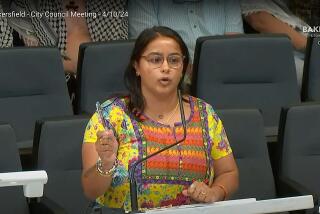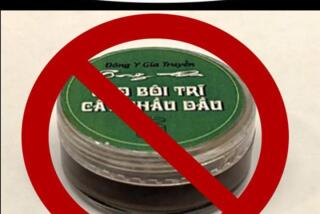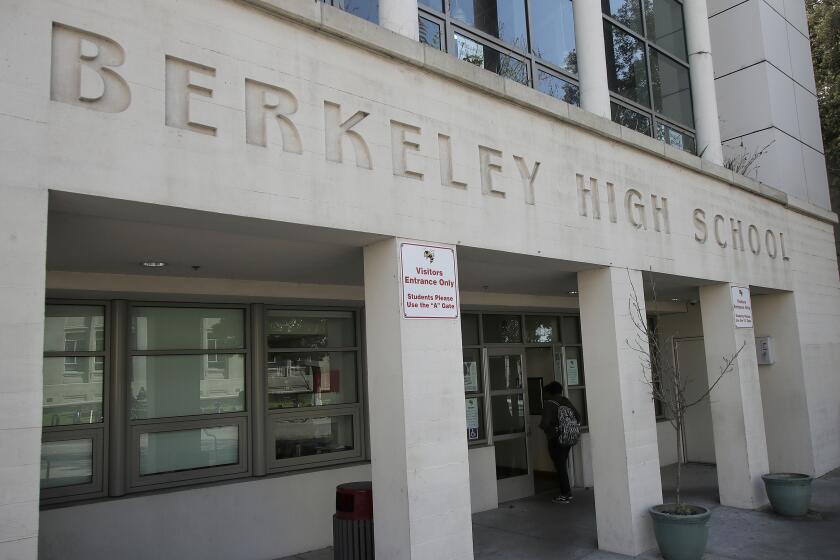Judge drops charges against UCLA professor in fatal 2008 lab fire
A Los Angeles judge has dismissed criminal charges against UCLA chemistry professor Patrick Harran, nearly 10 years after a staff research assistant suffered fatal burns in a laboratory he supervised.
In what was thought to be the first U.S. criminal case arising from an academic lab accident, Harran was charged with four felony counts of willfully violating state occupational health and safety standards in the death of Sheharbano “Sheri” Sangji, who died 18 days after the Dec. 29, 2008 fire.
In June 2014, Harran struck a deferred-prosecution agreement in which he would avoid the charges if he met certain conditions for five years. He agreed to teach organic chemistry courses for college-bound inner-city students in the summers, perform 800 hours of community service in the UCLA Hospital system and pay $10,000 to the Grossman Burn Center.
Last week at a regularly scheduled status hearing on the case, Harran’s attorney Thomas O’Brien asked Los Angeles Superior Court Judge George Lomeli to shorten the term of the agreement, which was to have run until June 2019. Lomeli, who had approved the original deal, granted the request.
“Dr. Harran completed all of the conditions he was supposed to complete, so the court dismissed the matter,” O’Brien said Wednesday.
Prosecutors objected to the dismissal.
Sangji’s sister, Naveen Sangji, said in an email to The Times that that the family was “not informed that this was even a possibility” and should have been given an opportunity to raise its own objection. She said she learned of the decision on Tuesday, five days after Lomeli rendered it.
“Our family had planned to be present and to speak, as is our right, at the final hearing which was to be nine months from now,” she said. The family has long contended that the deferred-prosecution agreement was little more than “a slap on the wrist” for Harran.
Sheri Sangji, 23, was not wearing a protective lab coat when a plastic syringe she was using to transfer t-butyl lithium from one sealed container to another came apart, spewing a chemical compound that ignites when exposed to air. She suffered extensive burns and died 18 days later.
Harran and UCLA contended that Sangji — who had earned a bachelor’s degree in chemistry seven months before her death — was a seasoned chemist who chose not to wear protective gear and had been trained in the experiment she was performing.
Harran, now 49, was accused of failing to provide proper hazardous-chemical safety training, failing to require body protection for employees exposed to hazardous substances and failing to have an effective illness- and injury-prevention program.
Three felony counts against the University of California were dropped in July 2012 when the Board of Regents agreed to follow comprehensive safety measures and endow a $500,000 scholarship in Sangji’s name.
https://twitter.com/kchristensenLAT
More to Read
Start your day right
Sign up for Essential California for news, features and recommendations from the L.A. Times and beyond in your inbox six days a week.
You may occasionally receive promotional content from the Los Angeles Times.







